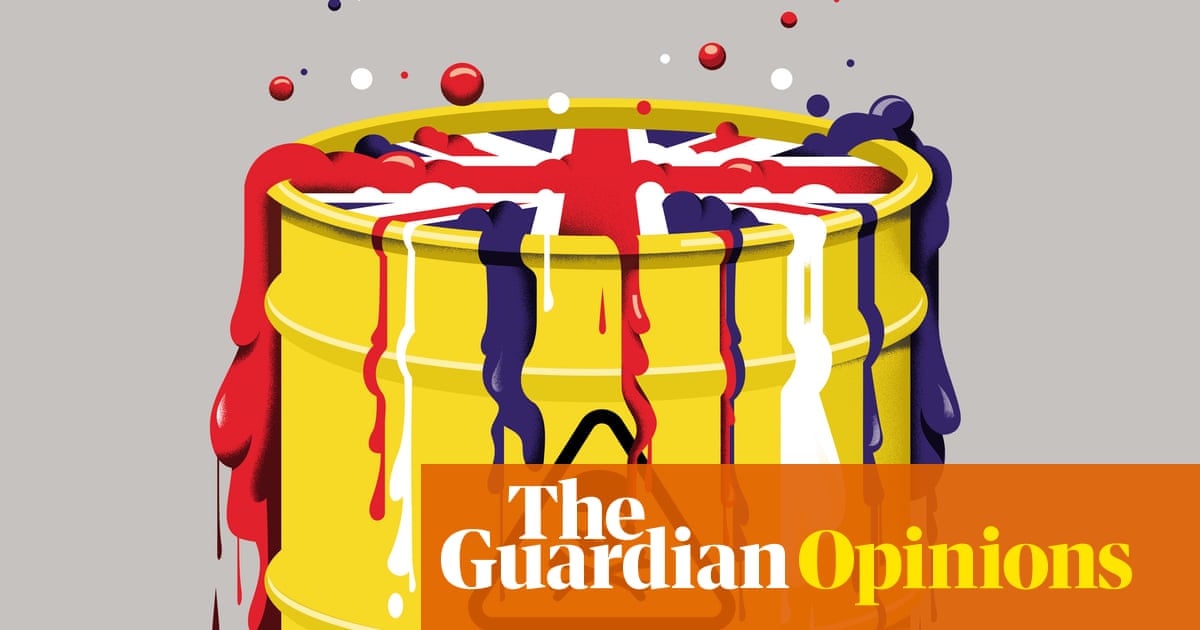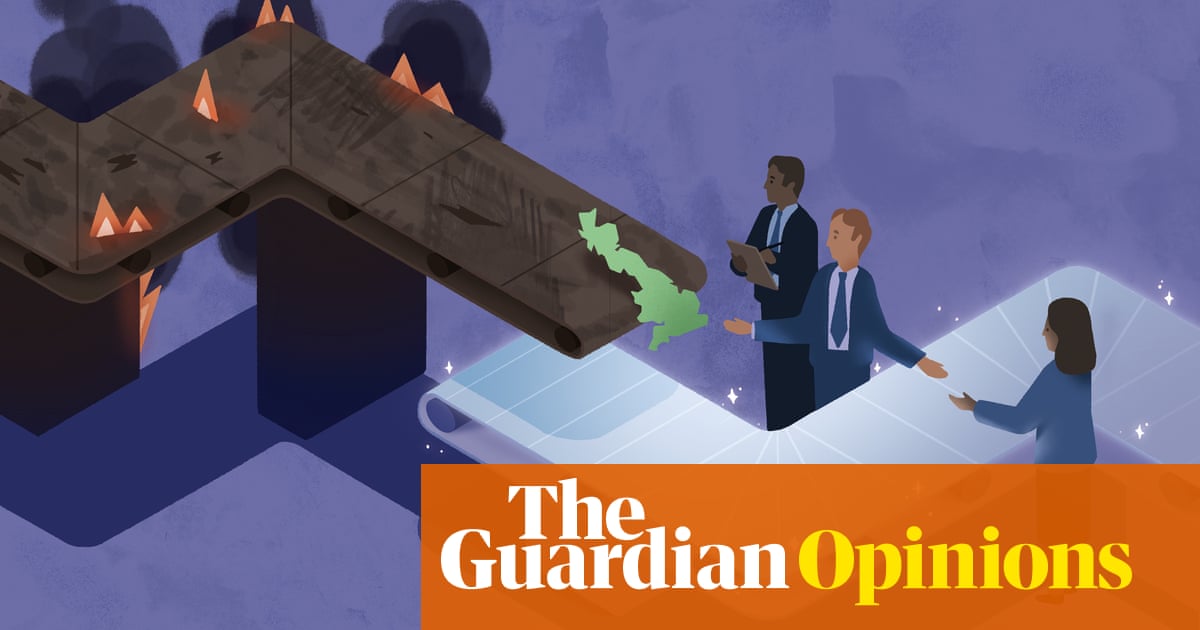
It’s a benefit of Brexit – but only if you’re a manufacturer or distributor of toxic chemicals. For the rest of us, it’s another load we have to carry on behalf of the shysters and corner-cutters who lobbied for the UK to leave the EU.
The government insisted on a separate regulatory system for chemicals. At first sight, it’s senseless: chemical regulation is extremely complicated and expensive. Why replicate an EU system that costs many millions of euros and employs a small army of scientists and administrators? Why not simply adopt as UK standards the decisions it makes? After all, common regulatory standards make trading with the rest of Europe easier. Well, now we know. A separate system allows the UK to become a dumping ground for the chemicals that Europe rules unsafe.
While negotiating our exit from the EU, the government repeatedly promised that environmental protections would not be eroded. In 2018, for example, the then environment secretary Michael Gove, in a speech titled Green Brexit, claimed “not only will there be no abandonment of the environmental principles that we’ve adopted in our time in the EU, but indeed we aim to strengthen environmental protection measures”. Such pledges turn out to be as dodgy as a £3 coin with Boris Johnson’s head on it.
Our proudly sovereign regulatory system immediately descended into total chaos: chaos of the kind that the warlord capitalists who backed the leave campaign might have been hoping for. It took the UK’s Health and Safety Executive (HSE) until last month to publish its chemicals regulation work programme for the financial year 2023-2024. That was, erm, six weeks before the period expired. You’ll remember, of course, how Brexit would enable us to escape the “inefficiencies” of Brussels bureaucracy.
As the campaign group Chem Trust documents, our shadow version of the EU system, called UK Reach, is beset by underfunding, understaffing, a skills crisis and an impossible workload. It looks to me like the kind of failure-by-design that afflicts so much of environmental regulation in the UK.
This dysfunction leaves us exposed to toxins now being banned or restricted in Europe. For example, tetraethyl lead has long been banned from fuel for surface vehicles. But it continues to be used in aircraft fuel, ensuring we are sprayed with a chemical that causes neurological disorders. The EU, after long resisting the obvious step, has at last ruled that it must be phased out. But the UK hasn’t. It will remain legal here. The same goes for endocrine-disrupting chemicals in children’s toys, formaldehyde, brominated flame retardants and the microplastics intentionally added to fertilisers and artificial sport surfaces.
The EU is far from perfect. It has backtracked on some of its own commitments. But at least it’s doing something about chemicals that cause cancers and other illnesses and devastate ecosystems. Since we left the bloc, UK regulators have yet to adopt a single new ban or restriction of a harmful substance. Brings a lump to the throat, this patriotic self-reliance, doesn’t it? Or perhaps to the breast, or stomach, or liver.
In some respects, we’ve even been spiralling backwards. The government has decided that workplace exposure limits on dimethylformamide, and restrictions of polycyclic aromatic hydrocarbons in synthetic sports pitches, of lead in PVC products and of hazardous substances in disposable nappies are “not a priority for action this year”. Part of its reasoning is that it has yet to see evidence that these substances pose a risk that is “specific to Great Britain”. Does their use in the UK present different risks to their identical use elsewhere? Perhaps the bulldog spirit of this sceptred isle protects us from chemicals that afflict the lesser beings overseas.
In the EU, there is now a total ban on the use of neonicotinoid pesticides – perhaps better labelled ecocides, thanks to their remarkably wide range of impacts. But every year since we left the EU, the UK government has granted an “emergency” exemption from the supposed ban here, following lobbying by sugar beet producers and the National Farmers Union. In August 2020, British Sugar asked for “no more than three years… to give us time to develop alternatives”. Given that it granted yet another authorisation in 2024, perhaps the government could ask British Sugar’s managing director how his company is getting along. He shouldn’t be hard to find. He’s married to the health secretary.
The more we learn, the more we realise how dangerous chemicals approved without proper testing or consideration can be. New findings, for instance, on the health effects of PFAS compounds – “forever chemicals” – and on the ecological and health impacts of pesticides, and on the effects of microplastics in soil show why we should apply the precautionary principle. By the time we discover that a substance is more hazardous than first believed, it is embedded in our ecosystems, our bodies and our lives.
While the UK government appears incapable of developing new public protections, it is also mysteriously unable, following lobbying, donations and taps on the shoulder, to uphold and enforce the regulations we do possess. Every body that’s supposed to protect us from environmental harm – such as the Environment Agency or the HSE – is woefully underfunded, underpowered and demoralised. This is where most deregulation happens: not in the formation or de-formation of rules, which, at least in theory, is subject to parliamentary debate, but in the government’s unwillingness to apply them, which is not.
This is why a group of us, called Fighting Dirty, are taking the government to court over its multiple failures to protect people and ecosystems from hazardous chemicals, beginning with its outrageous refusal to test or regulate the many toxins being spread on farmland in sewage sludge. We have just been granted permission for a high court hearing. Such legal actions, difficult and expensive as they are, are a last resort, when regulatory standards and the agencies supposed to uphold them have all but collapsed.
Brexit was sold to us on the grounds of intangible gains: a sense of autonomy and pride, particularity and independence. These intangible gains are accompanied by tangible losses: real impacts on our health and wellbeing. We might have left the EU, but we did not escape the demands of predatory capital. Far from it: freed from European restraints, they trickle insidiously into our lives.
George Monbiot is a Guardian columnist












